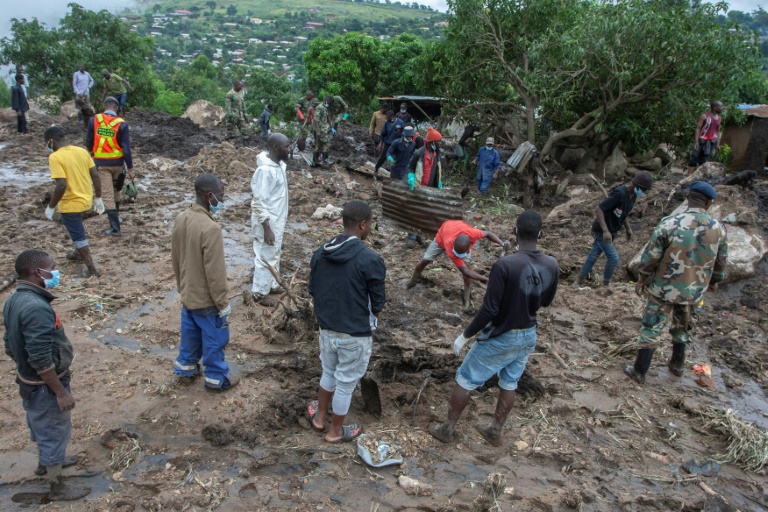Survivors return to disaster zones
Scaling up the slopes of Soche Hill in Blantyre from Chilobwe Market, the once populous settlement looks deserted with scatters of people clearing the rubble and boulders.
Four months after Cyclone Freddy dumped torrents, rockslides, mudslides in the illegal settlement, some survivors have started rebuilding while others are picking the pieces they can use elsewhere.

Both groups remember March 2023 as a month to forget after losing their homes, belongings and loved ones in the trail of destruction.
Patrick Matias fled into a kitchen as his collapsing house crushed his sister and children.
This month, he returned to the flattened spot where trees from uphill lay flat on mud dotted with rusty, crumpled iron sheets.
He recalls: “I heard an earthquake-like sound as if the mountain was falling apart. The house was already wet with water.
“I don’t know how I escaped, but my sister and her family were gone by the time I entered the kitchen. When I rushed back to rescue them, muddy flash floods shattered my home and a heap of mud lay where she was last seen.”
Matias took shelter in a congested camp for the displaced at Kapeni downhill, but returned to the landslide-battered steep slope after the camp was decommissioned in May.
The father of one now lives in the ruined kitchen where he hid when tragedy struck.
“I lost everything, except my daughter who stays with her husband away from here,” he says.
Matias is yet to start rebuilding following a futile search for a safer zone in the fast-urbanising city where fierce scrambles for land have pushed prices beyond his reach.
“Before the cyclone, I was driving a truck, but I’ve been jobless since my licence was washed away,” he says.
His neighbour, Emma Tasizimu, in her 70s, plans to reconstruct on the foundation of a wrecked house near where she found her pregnant daughter-in-law and son dead.
She recounts: “There used to be three homes, mine in the middle. That night, I lost my home, my son and his expectant wife as a stream we used to cross in one jump could not sustain the muddy flood. It took away everything from me.”
Tazisimu now lives with one of her three sons.
The oldest-surviving son rebuilt his home next to where his mother once lived since they had nowhere else to go after leaving Kapeni camp.
They first took refuge at Naotcha Primary School before shifting to Kapeni for children to resume learning.
Disasters in Malawi have become increasingly frequent and devastating due to climate change, unsustainable environmental management and the mushrooming of settlements in danger zones, including steep slopes and riverbanks.
To Civil Society Network on Climate Change national coordinator Julius Ngoma, Cyclone Freddy should awaken government to implement laws and policies against settling in danger zones
“Climate-related disasters need to be taken seriously and hazardous zones should be marked out as unsafe for settlements,” he says. “The country should plan ahead for such disasters since relocations have been a song for years which cannot be achieved without the required resources and funding,” he states.
However, Blantyre City Council director of planning Costly Chanza says the council is preparing land to relocate people from disaster zones and evacuation camps.
He states that all land applications have to go through the council as required by law and city by-laws.
“We will work with the Blantyre Water Board and Electricity Supply Corporation of Malawi to stop providing utility services in unsafe areas as well as work on reforestation,” says Chanza.
Minister of Lands Deus Gumba says government has identified areas in Blantyre, Zomba and Chikwawa for cyclone survivors and people living in unsafe areas
“We are working on a Bill where by November, at least 29 people can be allocated a piece of land to share and build their houses,” he says.
Cyclone Freddy damaged 260 681 houses and displaced 659 300 people out of the more than 2.2 million affected, according to post-disaster assessments by the Department of Disaster Management Affairs (Dodma).
The disaster left 679 people confirmed dead and over 530 declared missing by mid-March 2023, the official figures show.
The analysis conducted in 16 local government councils has revealed a total loss of $506.7 million, while Dodma estimates that the country requires no less than $680.4 million for recovery and reconstruction.





